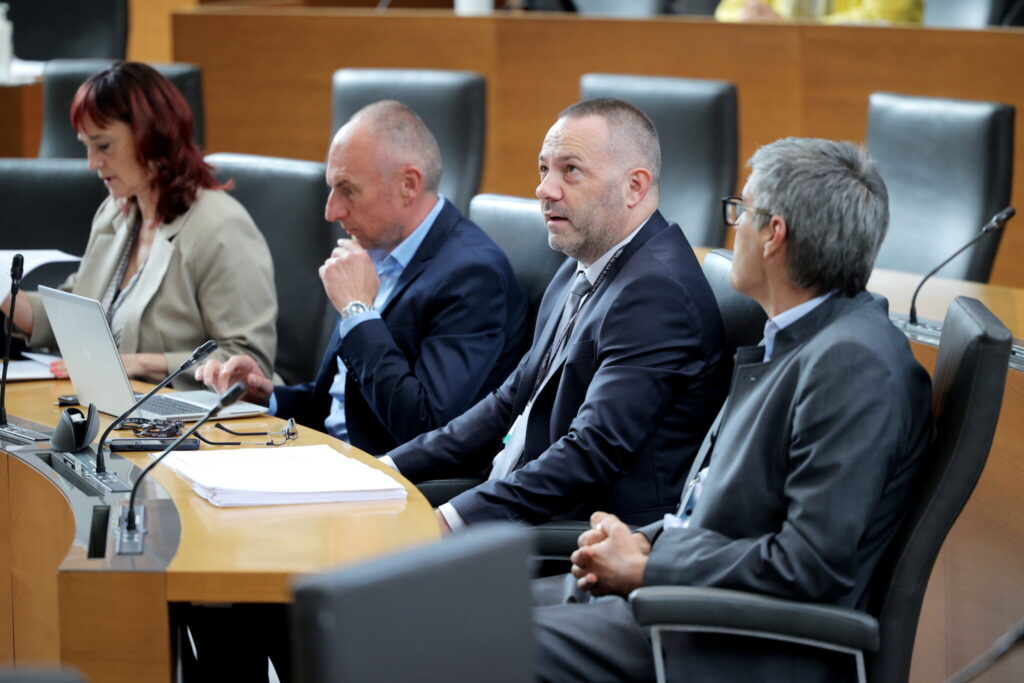“We have two key problems in the Slovenian healthcare system. One is the non-competitiveness of salaries, and the other is corruption in the procurement of medical equipment,” Janez Janša said in a recent episode of the show “Odmevi” (“Echoes”). Janša’s government had tackled the latter of the problems at its source – the problem of prices being negotiated between healthcare providers and public procurers, where there are countless loopholes and financial black holes into which the taxpayers’ money flows unchecked. A special office for reference prices was set up with the purpose of preventing this, but it was later abolished by the Golob government, because the central price register clearly bothered some of the “first-class” private companies, which have been concluding lucrative business contracts with the state for decades.
In its coalition agreement, the Janša government committed to curbing corruption in healthcare by setting up a system of comparable prices at the European level – a promise that was fulfilled on the 17th of March 2022. The then-government set up a government office responsible for setting reference prices in public healthcare procurement, with the aim of reducing the prices of medical devices and equipment and equalising purchasing prices in public healthcare institutions.
They established the Office of the Government of the Republic of Slovenia for the Central Price Record of Medical Devices and Medical Equipment, to provide information, organisational, technical and other assistance to the government in relation to healthcare procurement, with the specific aim of achieving comparable and optimal prices in public procurement. It was an office of very broad and strategic importance in ensuring the sustainability of public spending and the reduction of budgetary expenditure, as well as the transparency and appropriate comparability of procurement necessary for the efficient use of public funds. At the same time, the establishment of the Office ensured a more rapid approximation of market and sound competitive practices in the Republic of Slovenia to the standards of comparable countries in the European Union.
MPs adopted an amendment to the Public Procurement Act
On the 13th of January 2022, with 42 votes in favour and 11 against, the MPs in the then-Janša government adopted the amendment to the Public Procurement Act, which was submitted to the National Assembly on the 9th of June 2021, by a group of MPs, with Danijel Krivec from the Slovenian Democratic Party (Slovenska demokratska stranka – SDS) parliamentary group as the first signatory. “This is the first step in the right direction, but the road to lower prices for medical supplies and equipment will be a very long one,” said cardiologist Marko Noč, commenting on the adoption of the amendment. Then, on the 17th of March 2022, the government established the Office for the Central Price Record of Medical Devices and Equipment. On the 18th of March, at a meeting, the government appointed Klemen Štibelj as acting head of the Office.
The healthcare supplier mafia has returned with Golob
The medical godfathers, who are one of the co-founders of a new left-liberal scam called the Freedom Movement party (Gibanje Svoboda), were apparently extremely bothered by the establishment of the Office, as they abolished it soon after the Freedom Movement came to power. “The medical supply mafia is back in full swing. The abolition of the comparative pricing system is one of the main objectives of their lobbyists in the Freedom Movement party, the Social Democrats party (Socialni demokrati – SD), and the Left party (Levica),” Janša said when the Office was abolished, adding: “The vascular stents could once again be four times more expensive than in Austria. But the difference in price will, of course, be to the benefit of the left-wing weekly Mladina and company.”
And, as the Twitter user by the name Jure Colja pointed out, the amendment to the law that could have normalised the prices of medical equipment and prevented the theft of money intended for the care of patients was adopted during the government of Janez Janša, but immediately abolished by the current government.
“In the fight against corruption, our government has taken an important reform step. This was the amendment to the Public Procurement Act in the healthcare sector, the creation of a reference price Office, which was the basis for setting up a system where purchase prices could be compared,” Janša said, pointing out that Robert Golob abolished the law and the Office immediately after taking power. “So, prices can no longer be compared,” he added. He attributed the current crisis to “the many interests of those who are very much in favour of the mixing of public and private in the Slovenian healthcare system, and the lack of transparency in the procurement of services and, above all, medical equipment – and this is a problem that simply has to be addressed”, said Janša, who added that while his government created order and made sure to cut costs during the epidemic, the problem of the salary system remains, and is now a key challenge.
Sara Kovač


